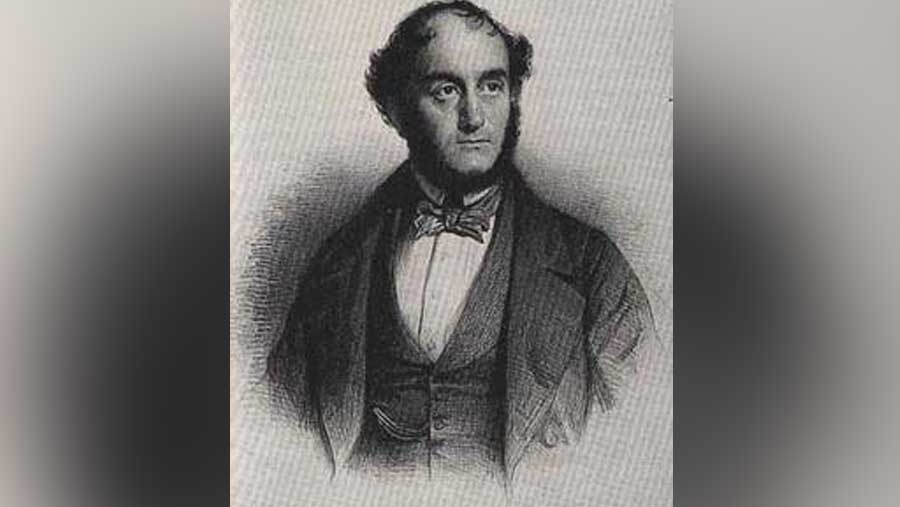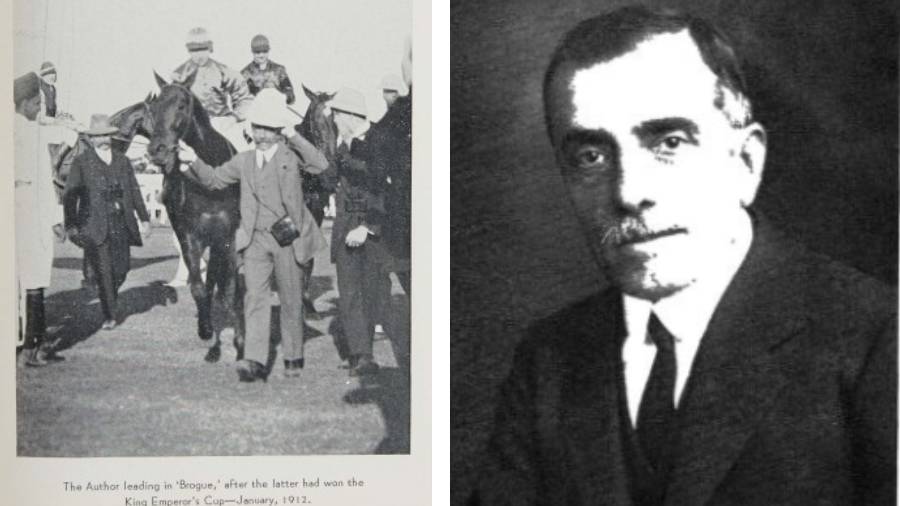In 1834, a boy was born in Stonehaven, Scotland. His parents named him Andrew. He was their third child, preceded by two elder brothers, David and George. Their father was a cloth merchant, so business was probably in their blood. Young Andrew had big dreams of becoming a trader and entrepreneur, something he shared with his brother George. The small Scottish town was never going to be enough to realise such dreams, and sometime around 1855, the two brothers moved to Manchester – a major trade hub of the time in Britain.
In 1858, the brothers formed a partnership to run a warehousing business. With the cotton business, in particular, booming in Manchester, the business flourished. In the 19th century, for young Britishers, the best chances of making a fortune lay in only one place – India – the “jewel in the royal crown”. Like many before him, young Andrew decided to sail to India with hopes of establishing a bigger business there. He arrived in Calcutta around 1863.
A most opportune and favourable moment
One factor played in his favour. By the early 1840s, there were sections of London’s commercial elite, who saw growth of private trade initiatives as one way of reducing the East India Company’s stranglehold on the economy of Her Majesty’s Indian territories. Thus, many private trade and commerce initiatives flourished since the late 1840s and early 1850s. The 1857 mutiny and subsequent handover of power from the Company to the Crown only added to this boom. So, Andrew landed in Calcutta at a most opportune and favourable moment.
Andrew’s first major business venture in Calcutta was the acquisition of the Hoolungooree tea estate in Assam. Soon, the business diversified into jute, cotton, coal and insurance. The business was a pioneer of bringing mechanised cotton spinning to Calcutta. Before Andrew’s arrival, this was limited only to Bombay. In 1875, George, and his nephew David (son of the oldest brother David), joined Andrew in Calcutta. The business grew from strength to strength in the coming years.

George Yule
Apart from their own businesses, the brothers also acted as trade representatives (agents) for several other companies. In its truest sense, it was a conglomerate – maybe the first of its kind in British India. In 1883, to meet its logistics needs, the company floated Inland Flotilla to connect Calcutta industries with hinterlands in Assam and East Bengal. As the years went, Andrew missed his homeland and made frequent trips back home. In 1888, after nearly 30 years in Calcutta, he finally left India and retired. The business was now in the hands of his elder brother and nephew.
A progressive and liberal outlook
Unlike many Europeans of his time, George had a progressive and liberal outlook. And unlike his younger brother, he was keen to play a role in public life. In 1886, he was elected as the Sheriff of Calcutta and two years later, he became president of the Indian National Congress, only the second European to have held the position. He was always vocal in demand of greater involvement by Indians in public affairs.
In 1892, with the death of George, and Andrew having retired, the reins passed to David. By the time Andrew passed away in 1902, the business had expanded to railways, printing press, and even a zamindari company in Midnapore district where it promoted agriculture, forestry, fisheries and infrastructure development. In 1895, Bengal Assam Steamship was set up by David and with the formation of Port Shipping Co. in 1906; the entity became the largest bulk commodity lighterage on the Hooghly.

Sir David Yule
In 1907, David built a new office for the business at 8, Clive Row – an elegant structure that was the talk of the town in those days. On January 4, 1912, during his India visit, King George V knighted David for his contribution to expanding the Crown’s business interests in India. Meanwhile, the business had further expanded to include shipping, power, paper, engineering and more. And by 1913, Sir David's business was the largest managing agency in the country with 19 companies under its purview.

Yule House was the talk of the town when it opened Andrew Yule
In 1919, the business incorporated as ‘Andrew Yule & Co. Pvt. Ltd.’, in honor of the strapping young Scotsman who arrived in Calcutta more than half a century ago with a great dream. In 1922, Sir David was made the first baron of the Hooghly River. In his last major deal before his death in 1928, Sir David acquired the entire stake in The Statesman. The stake would later get distributed among seven business houses including the Tatas. In 1946, the company went public. At the time of India’s Independence, Andrew Yule Ltd. had a turnover of Rs 23 crores, managed more than 57 companies and provided employment to 86,000 people.
Even after Independence, the company flourished till about 1969, when the agency house system was abolished and the coal and insurance businesses were nationalised by the central government. Yet, the business founded by two enterprising Scottish brothers survived the tumultuous Bengal of the 1970s and ’80s, and today is still going strong after more than 150 years – now as a central government undertaking. The Hoolungooree tea estate – Andrew’s first acquisition is still in operation and is a treasured icon in the organisation. Sir David’s dream project – Yule House – still stands in all its glory at 8, Clive Row, and continues to function as the group’s headquarters.

The Hoolungooree tea estate Andrew Yule
A rather curious phenomenon that reportedly started in Sir David’s time continues to the present day at Yule House – every year on Good Friday, the sizeable Odiya employee population at Yule organise a Jagannath Puja, where verses from the Bhagavad Gita are recited, in a bid to promote inter-faith harmony. Through the ups and downs of more than a century, this practice has continued unabated – setting a grand example for all to follow.
The Yule clan did come to Calcutta as prospective merchants in look-out for profit. But over time, they became an integral part of the city and played a very important role in the city becoming what it is today: a story that has largely been lost with the passage of time.


